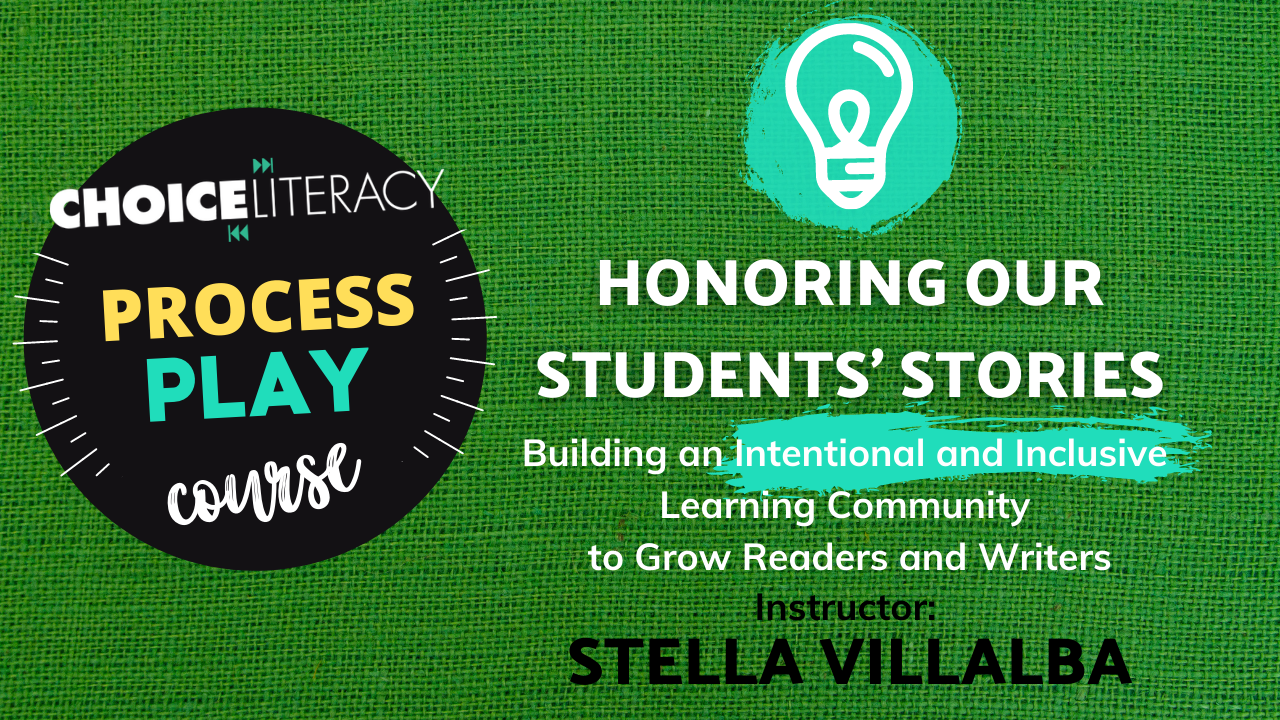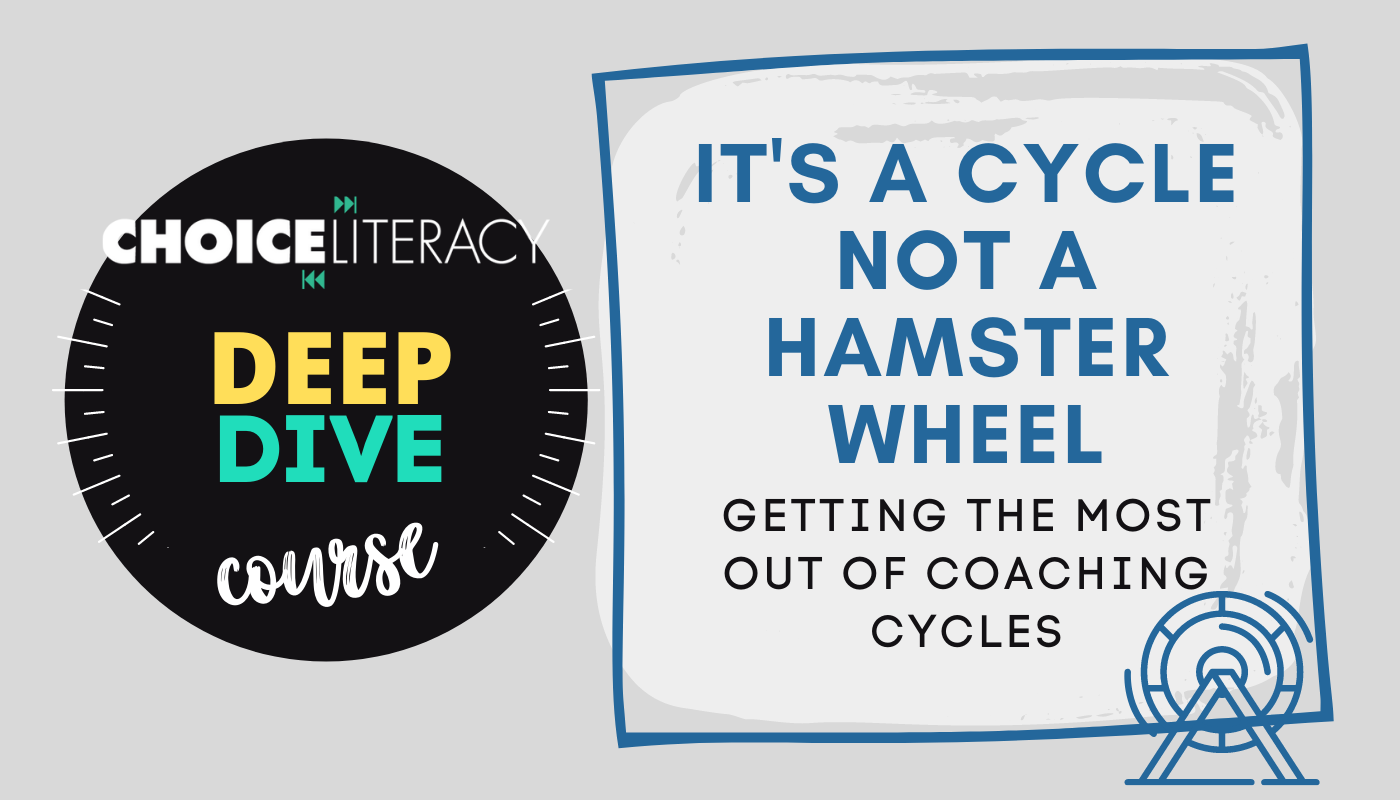Change is inevitable. Growth is optional.
—John Maxwell
[Now you can listen to the Big Fresh as a podcast!]
Take Time to Reflect
Many years ago I wrote my first book, Day by Day: 180 Days of Reflective Practice for Writing Workshop (Stenhouse, 2008). This week the Big Fresh theme highlights the importance of reflective practice; I can’t escape the opportunity to reflect. *smile*
Reflection allows me to stay focused on learning rather than perfection.
As a recovering perfectionist, I am constantly fighting against my nature to believe there is an “arrival” at the best instructional practices. The truth is we are constantly learning about how children learn and developing stronger practices. Reflective practice allows for lifelong learning.
Reflection keeps me honest.
It is difficult to accurately determine how things are going at the moment. We can feel like failures or superheroes, but the reality is likely somewhere between these extremes. Reflective practice provides space and time to accurately discern the quality of our instructional practices.
Reflection empowers growth.
A principal once described a teacher as teaching the same year 27 times. Essentially, the principal was indicating that nothing had changed over the course of the teacher’s career. I thought this may be impossible, but when I met with the teacher, he pulled a file folder from his cabinet. Inside were purple mimeographs, black line master copies, and transparency films.
All were identical. The teacher clicked his mouse and opened a Google document that was identical to the mimeograph. He smiled and said, “I’m staying current by using technology.” By engaging in reflective practice we are inspired to try new ideas and grow as educators. Let us never teach the same year over and over again.
With so much information and many demands circulating about literacy instruction, reflective practice allows the space to slow down and see the bigger picture. May this week’s articles, course, and videos be just what you need to take time to reflect on your practice.
Shine on!
Ruth Ayres
Editor in Chief, Choice Literacy
Ruth Ayres is the editor in chief of the Choice Literacy site and the director of professional learning for The Lead Learners Consortium in northern Indiana. Ruth previously worked as a middle and high school language arts and science teacher and a K-12 instructional coach. She is the author of Enticing Hard-to-Reach Writers (Stenhouse, 2017) and other books for teachers of writers. When not writing professionally, Ruth collects stories of adoption, faith, and whimsy. You can follow her at Ruth Ayres Writes or @ruth_ayres on Twitter or Instagram.

Join the Choice Literacy Book Club! We are taking a break in the month of December and will be back in January. Sign up now so you are in the know about #ChoiceLiteracyBookClub.
Cathy Mere and Ruth Ayres discuss this week’s theme, reflective practice, on the podcast.
Tara Barnett and Kate Mills use a know-and-wonder activity to encourage curiosity and independence as their seventh graders begin a new text. This article was first published in 2018.
Andrea Smith builds reflection into whole-class discussions in her fourth-grade classroom by beginning an anchor chart with four different illustrations from the covers of a read-aloud. This article was first published in 2017.
Melanie Quinn consoles a teacher who is recovering from a disastrous lesson captured on video, and shows the power of a “do-over” for both teachers and students. This article was first published in 2012.
NEW COURSE! Don’t miss Stella Villalba‘s new course Honoring Our Students’ Stories: Building an Intentional and Inclusive Learning Community to Grow Readers and Writers. This course is free to Literacy Leader members and available to purchase.
Stella Villalba teaches us how to discover, honor, and share student stories to create an inclusive learning community. With special attention to English learners, Stella walks educators through a process to intentionally honor the past and present of students to position all students to grow as readers and writers.

New members-only content is added each week to the Choice Literacy website. If you’re not yet a member, click here to explore membership options.
Julie Cox makes a case for reflection as an essential tool for growth and innovations. She shares simple and powerful practices that will allow all educators to continue to deepen their instructional practices.
Gretchen Schroeder uses her reluctance as a marathon runner to reflect on how to encourage more engagement in reading and writing.
Don’t forget our downloads! Brenda Power offers a downloadable guide that includes 10 different quotes from a range of educators, activists, authors, and innovators for reflection at all times of the year.
In this encore video, Christy Rush-Levine shows a group of three students how they can use a storyboard to help track thinking while reading.
The Elementary Contributor course Empower Choice is an excellent way to reflect on the choices you offer students as readers and writers. It is free to all members or available to purchase.

New members-only content is added each week to the Choice Literacy website. If you’re not yet a member, click here to explore membership options.
In the course It’s a Cycle Not a Hamster Wheel: Getting the Most Out of Coaching Cycles, Dana Murphy takes you into the nitty-gritty of coaching cycles with examples and advice from experienced literacy coaches from across the country. You’ll view videos of an initial meeting between a coach and a teacher to plan a cycle and sample demonstration lessons within a cycle, as well as quick tips for getting organized and taking good notes throughout the cycle. (This course was created in 2019.)
In a Coaching Minute, Ruth Ayres shares the importance of being aware of how your presence affects the room. This is part of a series about the importance of norms.
In an encore article, Stephanie Affinito finds that simple, quick, and modest celebrations can be just what teachers need to get through a long day. She shares the value of these coaching high fives.
Quote It:
Gratitude is when memory is stored in the heart and not in the mind.
—Lionel Hampton
That’s all for this week!





